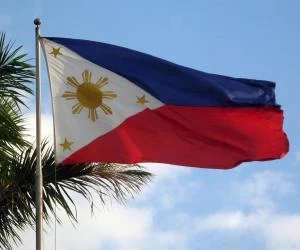Philippine lawmakers are pushing several bills to keep banned offshore gaming operations from sneaking back into the country. Senator Risa Hontiveros is calling for a comprehensive anti-POGO Act.
Philippine Offshore Gaming Operations (POGOs) formally launched in 2016, during the administration of former president Rodrigo Duterte.
In 2023, they generated revenue of PHP24 billion (£330.24 million/€398.4 million/$412.8 million). Of that, PHP8.88 billion went to the government in taxes. POGOs also employed more than 100,000 foreign and domestic workers, and sparked a real estate boom. At their peak, POGO facilities occupied about 10% of office space in Metro Manila.
But over time, the industry became infested with crime, including cyber-fraud and money laundering. Some POGOs were nothing more than fronts for online love and crypto scams. After a series of raids last year, freed workers claimed they were targets of human trafficking and torture.
Ban was not the end of POGOs
Last July, in a blistering State of the Nation address, president Ferdinand Marcos Jr. outlawed POGOs with immediate effect. “This grave abuse and disrespect to our system must stop”, he said.
But concerned lawmakers say the ban, codified 8 November 2024 in Executive Order 74, isn’t enough to keep POGOs from coming back. For example, about 11,000 foreign POGO workers are still living in the Philippines, in defiance of government orders to leave the country by 31 December 2024.
And since the ban, law enforcement has continued to uncover pockets of POGO activity. Last October, one stealth operation was found in Pasay City, in sight of the senate office building where an official POGO probe was underway.
At the time, a frustrated senator Sherwin Gatchalian said, “Despite the president’s unequivocal directive for a total ban, criminal syndicates continue to exploit POGO resources to fuel their fraudulent operations”.
Hontiveros: “We need a comprehensive law”
Senator Risa Hontiveros insists EO 74 falls short, because it only bans POGOs licenced by the Philippine Amusement and Gaming Corporation.
“I hope the year 2025 is the year we finally pass the Anti-POGO Act”, Hontiveros said 2 January. “We need a comprehensive law to ensure that there will no longer be POGOs that scam, hurt and deceive people”.
Gatchalian agrees. “Our proposal expands the definition to make sure that … regardless of who issued the licence, (it) will be captured in the law”, he told Channel News Asia.
“We saw a lot of loopholes in our system that enabled POGOs”, the senator continued. Case in point: Alice Guo, who was elected mayor of Bamban, Tarlac, though she is apparently a Chinese citizen.
Guo “managed to influence key decision makers in the military and police, all while remaining undetected,” said Gatchalian. Also known as Guo Hua Ping, the former mayor and alleged spy has been charged in connection with crimes at a Bamban POGO facility.
The proposed legislation would also address immigration checks, foreign interference and espionage, CNA reported.
POGOs infiltrating new industries
Gatchalian says POGOs are now masquerading as other legitimate business entities. “More than ever, we need to sustain our efforts to clear out all criminal syndicates that are products of POGOs”, he said in a news release today.
“Law enforcement agencies, local government units and the general public must remain vigilant against POGO offshoots disguised as legitimate business entities”.
A Philippine Inquirer editorial on the “post-POGO roadmap” welcomed lawmakers’ push for stronger legislation. But it expressed doubt that everyone is on board.
“Fly-by-night POGOs are now camouflaged as restaurants, resorts, or hotels”, the editors stated, citing interior secretary Jonvic Remulla.
“One can only imagine how this is possible without the protection of local power brokers, criminal syndicates, or worst, public officials”.



